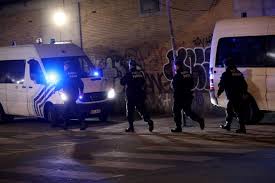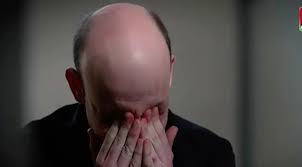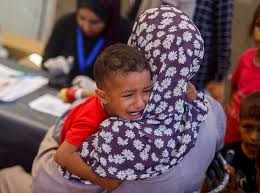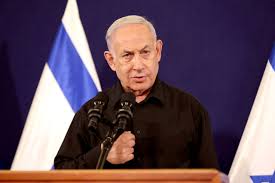Monitoring Desk
Supporters of president as well as those of major political party Ennahda mobilise on streets across Tunisia, leading to violent confrontations threatening to draw in security forces or prompt a military power grab.

Street clashes have erupted outside Tunisia’s army-barricaded parliament, a day after President Kais Saied ousted the prime minister and suspended the legislature, plunging the young democracy into a constitutional crisis.
Supporters and opponents of the president threw stones at each other outside parliament on Monday morning leading to injuries with one man sitting on the pavement bleeding from the head. Tunisia’s hard-currency bonds tumbled.
Saied sacked Prime Minister Hichem Mechichi and ordered parliament closed for 30 days, a move the biggest political party Ennahdha decried as a “coup”, following a day of angry street protests against the government‘s handling of the Covid pandemic.
The army, which has yet to comment on Saied’s moves, deployed to the government palace in the Kasbah and stopped workers from entering the building on Monday.
Ennahda says it ‘will defend 2011 revolution’
Saied’s dramatic move — a decade on from Tunisia’s 2011 revolution, often held up as the Arab Spring’s sole success story — comes even though the constitution enshrines a parliamentary democracy and largely limits presidential powers to security and diplomacy.
It “is a coup d’etat against the revolution and against the constitution,” Ennahda, which was the biggest party in Tunisia’s fractious ruling coalition, charged in a Facebook post, warning that its members “will defend the revolution”.
The crisis follows prolonged deadlock between the president, the premier and Ennahda chief Rached Ghannouchi, which has crippled the Covid response as deaths have surged to one of the world’s highest per capita rates.
“I have taken the necessary decisions to save Tunisia, the state and the Tunisian people,” Saied declared in a statement on Sunday, a day that had seen Covid street protests flare in multiple cities.
The president’s announcement sparked jubilant rallies by many thousands of his supporters who flooded the streets of the capital late Sunday to celebrate and wave the national flag, as car horns sounded through the night and fireworks lit up the sky.
President says ‘most delicate moments’
Before the president’s announcement, thousands had marched in several cities protesting against Ennahda, criticising the lead party in Tunisia’s government for failures in tackling the pandemic.
A senior Ennahda official, speaking to AFP news agency on condition of anonymity, alleged that the protests before Saied’s announcement, and the subsequent celebrations, had all been choreographed by the president.
“We are also capable of organising large demonstrations to show the number of Tunisians who are opposed to these decisions,” this official said.
Since Saied was elected in 2019, he has been locked in a showdown with Mechichi and Ghannouchi, who is also house speaker. The rivalry has blocked ministerial appointments and diverted resources from tackling Tunisia’s many economic and social problems.
“We are navigating the most delicate moments in the history of Tunisia,” Saied said on Sunday.
He said the constitution did not allow for the dissolution of parliament, but did allow him to suspend it, citing Article 80 which permits it in case of “imminent danger”.
In a later Facebook post, he clarified the suspension would be for 30 days.
Saied said he would take over executive power “with the help” of a government, whose new chief he would appoint himself.
He also said that parliamentary immunity would be lifted for deputies.
‘Fools celebrating birth of new dictator’
In the 10 years since Tunisia’s popular revolution toppled dictator Zine El Abidine Ben Ali, the North African country has had nine governments.
Some of them have lasted only a few months, hindering the reforms needed to revamp its struggling economy and poor public services.
Tunisia has recently been overwhelmed by Covid-19 cases which have raised the death toll to more than 18,000.
Last week, Mechichi fired his health minister as cases skyrocketed, the latest in a string of health ministers to be sacked.
In Sunday’s Covid protests, hundreds rallied in front of parliament, shouting slogans against Ennahda and Mechichi. Demonstrations were also reported in the towns of Gafsa, Kairouan, Monastir, Sousse and Tozeur.
Several demonstrators were arrested and a journalist was wounded when protesters hurled stones and police fired tear gas canisters, an AFP reporter said.
“The people want the dissolution of parliament,” the crowd had chanted.
After Saied’s announcement, many Tunisians expressed relief and took to the streets in joyful celebration.
A jubilant Nahla, brandishing a Tunisian flag, told AFP: “These are courageous decisions … This is the president we love!”
But one man, aged in his forties, watched on without enthusiasm and said: “These fools are celebrating the birth of a new dictator.”






